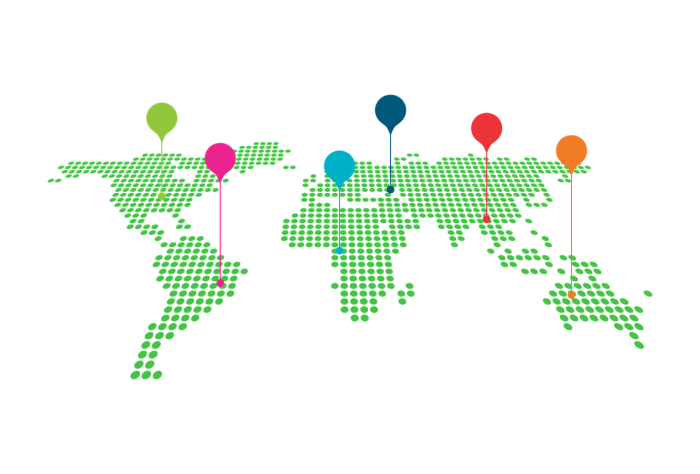One of the best ways for a business to increase sales and growth is to expand overseas. Despite what many perceive as complex local laws, political issues, and cultural barriers, the risk is worth the potential profit increase.
There are obstacles to overcome, but none that can’t be appropriately addressed if you plan correctly.
If you decide you are ready for a move into the global marketplace, this list of do’s and don’ts will help you do so efficiently.
Do Your Research
Research is the most vital component of entering into markets outside your own country. You can learn a lot about the political and economic climate on the internet. Accessing the basic components of importation rules, potential tax issues, and even cultural differences is possible online.
However, there is no substitute for on-the-ground experience. Send in your fact-finding team early. Simple things may not appear in online research. Electricity may not work as well as the tourist and government-sponsored websites suggest. You may find routes to and from your projected place of work or warehouse take much longer than the distances suggest due to local infrastructure and road conditions.
Do Use Professional Translators
Language and translation can be tricky. Many companies have learned the hard way that a brand slogan in English may mean something entirely different, or could be unintelligible, in another language.
You need professional translators, not necessarily tourist operators. A translator who can help with menus, provide a narrative regarding a tourist attraction in English or help you shop, may not have the skills to help you negotiate with property managers, deal with utility companies, or understand the complexities of customs requirements.
Do Employ Locals
Local hires not only speak the local language but can provide a pool of people who have experience working within the local culture. They will understand the various idiosyncrasies of dealing with local officials and local-based clientele.
Do Carefully Screen Local Partners
Ensure you do proper due diligence on any local partners. While there can be legal restrictions on what is possible, there are plenty of companies you can outsource your screening needs to that understand how to work within a country’s privacy laws.
You need sound legal advice to ensure you do not enter into an agreement that will ultimately cost you money and negatively impact your business elsewhere.
Do Choose Your Overseas Locations Carefully
If you do the proper research, you should have a good grasp on where around the world your product or service has the best chance to succeed. Access the risk for not only your product to sell in a market but also the risk to existing personnel who may relocate or visit the area.
Do Leverage Existing Client Relationships
Some of your key customers may be able to help with your global expansion plans. For example, perhaps your customer’s needs are not being met in a country or region. The client may agree to partner with you to help provide the goods or services the customer lacks.
A partnership can also help you more readily grasp the cultural and legal differences of doing business in the area.
Do Consider Local Acquisitions
Choosing to acquire a local company already working in your sector has a lot of advantages compared to starting operations from scratch.
A local company will already understand the culture and have experience working and dealing with the local legal system. You will have an instant, seasoned team you can use to get your product or service out in the local market with minimal infrastructure preparation.
Don’t Underestimate the Costs
The costs and investments necessary to operate in a new market can be significantly greater than expected. Carefully scrub your numbers and budget appropriately. You need to establish the right price point for your product or service, so you have sufficient margins to operate and make a profit.
Don’t Necessarily Expect Your Business Model in the U.S. to Work Elsewhere
Another crucial factor in the global sales and marketing process is understanding how to reach your target market. The distribution model you use in the United States and Europe, for example, may not work in the Middle East.
Sales methods and even products themselves may require modification to reach the new local or regional target market.
Don’t Assume Being an American- or Western-Owned Company Is an Asset
You may need to educate the local market as to the benefits of buying American. Certain countries may not equate “better” with an American version of a type of product or service they have been obtaining for years locally, even if it may be inferior.
Don’t Assume Your Intellectual Property Is Safe
Ensure you get sound local legal advice regarding the protection of intellectual property. Remember that just because a country may have local laws addressing intellectual property rights or is party to an international treaty recognizing intellectual property rights does not mean the laws will be enforced.
The country you operate in may not have the ability to enforce intellectual property laws. You may need to institute your own set of internal protections to minimize the risk.
Don’t Sign Exclusive Distribution Agreements Without a Time Limit
Local distributors often will pressure you into providing exclusive distribution rights for your product or service in the country territory where you want to start up operations.
It may seem like the quickest and easiest way to gain access to a new country’s market, but you may regret it later.
It may limit your growth potential and profit margins, especially if you do not include specific sales goals, marketing requirements, and other specifics to protect yourself.
If you do decide exclusive distribution rights are best for entry into this specific market, limit the term of the contract. Ensure a qualified local attorney approves the contract language.
Don’t Expect the U.S. Embassy to Bail You Out of Trouble
When you are in a foreign country, you are under its rules and authority. If you, one of your employees, or your business gets in trouble, the U.S. Embassy has very limited resources to assist you. The embassy can help you obtain local council and conduct health and welfare checks, but that is about all. The U.S. Embassy cannot violate local sovereignty. The U.S. Constitution does not apply outside the borders of the United States.
Find a Home-Based Business to Start-Up >>> Hundreds of Business Listings.



















































